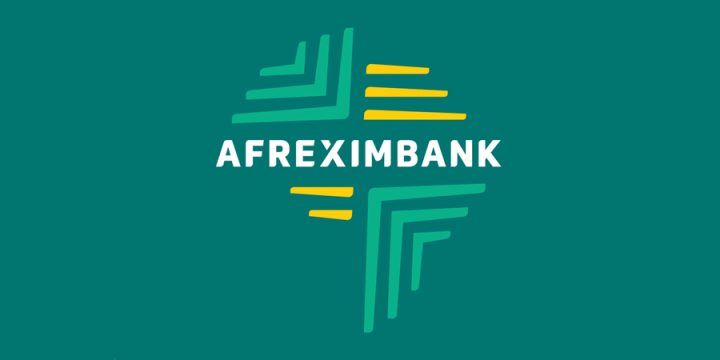The Federal Government of Nigeria has entered into a landmark $500 million financing agreement with the African Export-Import Bank (Afreximbank) to accelerate the development of the country’s gas infrastructure. The deal, which was officially sealed this week, is a key step in advancing Nigeria’s energy transition plan while also boosting its economic growth prospects.
The facility is targeted at strategic investments in midstream gas infrastructure, including processing plants, pipelines, storage facilities, and distribution networks. By improving gas infrastructure, the government aims to expand domestic supply, encourage industrialisation, and strengthen Nigeria’s position as a major player in the global gas market.

Minister of Finance and Coordinating Minister of the Economy, Wale Edun, who signed on behalf of Nigeria, described the agreement as “a vital partnership that aligns with the administration’s priorities of attracting foreign investment, diversifying the energy mix, and leveraging natural gas as a transition fuel.” He emphasised that Nigeria holds one of the world’s largest gas reserves, but underutilisation and infrastructure gaps have hindered the sector’s full potential for decades.
Afreximbank President, Prof. Benedict Oramah, stated that the bank remains committed to supporting African nations in unlocking the value of their natural resources through strategic financing. According to him, the $500 million facility demonstrates Afreximbank’s confidence in Nigeria’s economic reforms and its capacity to turn gas into a growth driver for industries such as power generation, fertiliser production, petrochemicals, and transportation.
The timing of the agreement is significant. Nigeria has been struggling with energy shortages, rising costs of petroleum products, and declining oil revenues. With the global shift toward cleaner energy, the government has identified natural gas as the “fuel of choice” to bridge the gap between fossil fuels and renewable energy. Gas is seen as both abundant and relatively cleaner, making it central to Nigeria’s Energy Transition Plan, which aims to achieve net-zero emissions by 2060.
Part of the funding will also be channelled toward developing Liquefied Natural Gas (LNG) and Compressed Natural Gas (CNG) projects to provide affordable energy for households and businesses. This aligns with the Federal Government’s recent push for the adoption of CNG-powered vehicles as an alternative to petrol, following the removal of fuel subsidies.
Industry experts believe that the partnership with Afreximbank could transform Nigeria’s energy landscape if properly executed. Dr. Maikanti Baru, an energy analyst, noted that the biggest challenge for Nigeria’s gas sector has always been inadequate infrastructure. “Nigeria flares significant volumes of gas annually while industries and households struggle with shortages. With this financing, the country can expand processing and distribution infrastructure, reduce flaring, and unlock billions of dollars in economic value,” he said.
The deal is also expected to create thousands of direct and indirect jobs. New gas processing and distribution projects will stimulate employment across engineering, construction, logistics, and maintenance, while also fostering small and medium enterprises that depend on affordable energy access. Additionally, more reliable gas supply is expected to reduce the costs of power generation, which could provide relief for manufacturers and boost competitiveness in regional and global markets.
However, experts have warned that successful implementation will require transparency, accountability, and strong coordination between government agencies and private sector operators. Past infrastructure projects in the oil and gas sector have been plagued by delays, cost overruns, and corruption, raising concerns about effective management of this new facility.
The government, on its part, has assured Afreximbank and Nigerians that robust monitoring frameworks will be put in place. Minister Edun reiterated that the Tinubu administration is committed to fiscal discipline, ensuring that every dollar of the facility will be channelled to priority projects that directly impact the economy.
Beyond domestic gains, the financing also positions Nigeria to expand its gas exports, particularly to Europe and other regions seeking alternatives to Russian gas. Nigeria is already a major LNG exporter through the Nigeria LNG (NLNG) project, but new investments in infrastructure could boost capacity and improve global competitiveness.
For Afreximbank, the facility reflects a broader vision of supporting Africa’s industrialisation by financing key infrastructure projects that reduce reliance on raw resource exports. By supporting gas infrastructure, the bank aims to help Nigeria move up the value chain, process more of its resources locally, and generate higher economic returns.
In the coming months, stakeholders will be watching closely as the Federal Government rolls out specific projects under this financing agreement. Nigerians, who have endured high energy costs and unreliable power supply, will be eager to see tangible benefits in the form of lower prices, improved access, and greater economic opportunities.
The $500 million deal underscores the critical role of partnerships between African governments and regional financial institutions in addressing infrastructure deficits. For Nigeria, it represents a chance to harness its gas wealth for economic transformation, create jobs, improve living standards, and contribute to global efforts toward a more sustainable energy future.
Support InfoStride News' Credible Journalism: Only credible journalism can guarantee a fair, accountable and transparent society, including democracy and government. It involves a lot of efforts and money. We need your support. Click here to Donate
